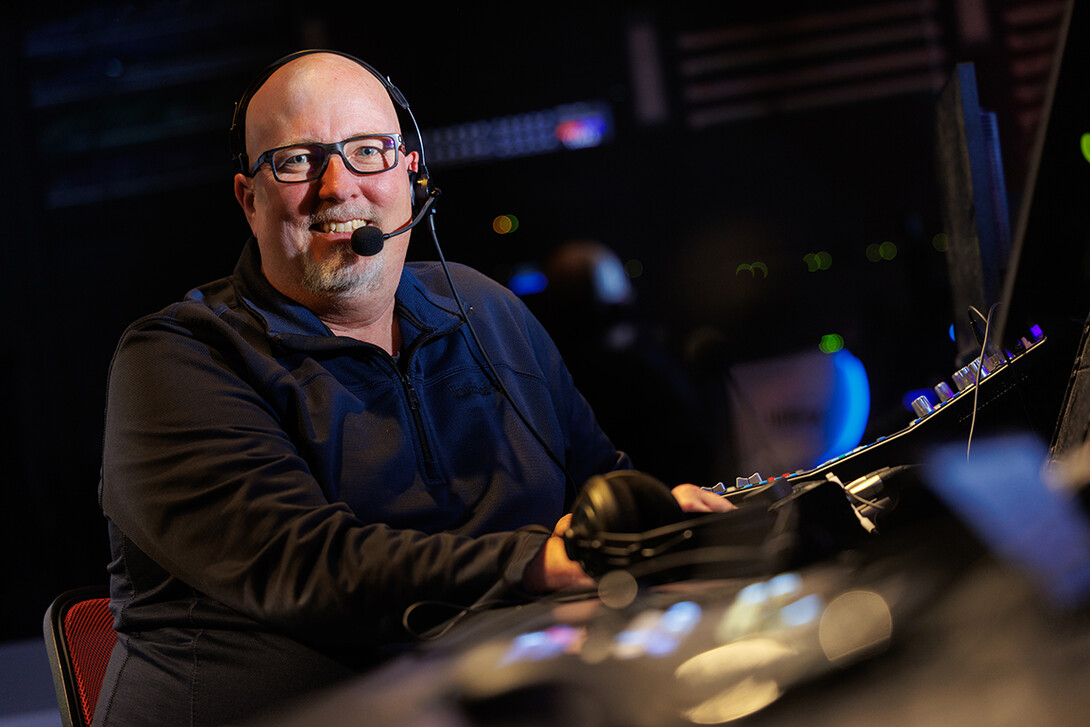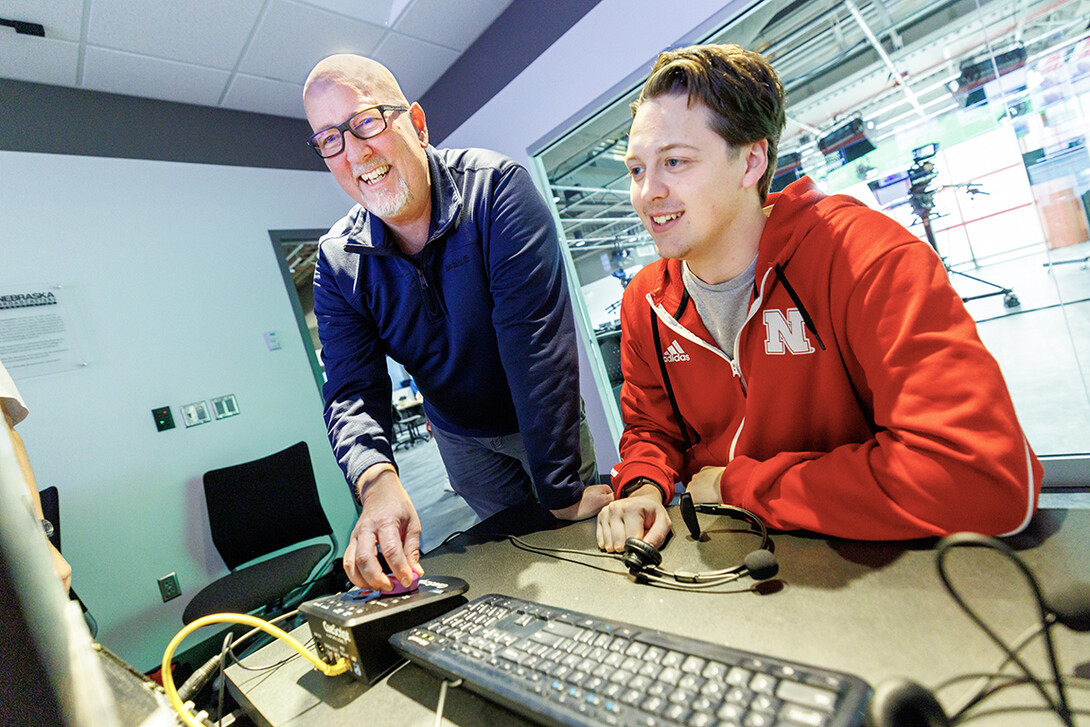
Sometimes when Jamie Wenz is sitting in Pinnacle Bank Arena waiting for a Husker basketball game to start, his phone rings. Wenz gets up and walks across the arena, where students are preparing for a broadcast.
“I’ll troubleshoot with them and hopefully join my wife in time for the National Anthem,” Wenz said.
Wenz, technical director for the College of Journalism and Mass Communication, helps maintain equipment and aids in training students on how to use it. Wenz brings years of broadcasting experience and hopes to bring some knowledge and a helping hand to make students successful.
“I work for the students here,” he said. “I want to make sure they never have a situation where a failure of a piece equipment prevents them from finishing their assignment or conducting a successful broadcast.”
Wenz is responsible for the equipment in the television and radio studios at Andersen Hall and helping students understand how to use it for class assignments or other college activities. He also sometimes assists during classes that are using the equipment.
Wenz has been working at Nebraska for around three years. His career in broadcasting began at KNOP in North Platte while he was attending a community college there.
“I applied for a job at McDonald’s and at the TV station and I didn’t hear back from McDonald’s,” Wenz joked.
He moved to Lincoln and then worked at 10/11 News, Time Warner Cable and the City of Lincoln’s LNKTV before joining the university.
In transitioning to the education world, Wenz said there was a learning curve even when it came to the variety of equipment he was working with, but he said he’s learned more about how it operates and what it takes to get things running again. He was also involved in the process of installing a new tower for KRNU on Oldfather Hall.
“I didn’t have any education in engineering and things like that, it was all things I learned on the job and through my roles at previous jobs,” he said. “I’ve got to the point where I kind of know how it works and the first place to look when something goes wrong.”

Working with students was the most significant new aspect of the job, but Wenz said it’s also the most rewarding. He often gets to work with small groups of students and teach them about the equipment or help them troubleshoot.
“When they’re just learning equipment, a lot can go wrong,” he said.
Wenz tries to be patient with the students when they need that kind of help and walk them through the steps so they know how to fix it themselves if it happens again.
“Looking back, I learned the most when something went wrong and someone showed me the way to make it work,” Wenz said. “You can tell they’re fairly stressed anyway. I try not to add to the stress.”
Although Wenz has only been in the job for three years, he’s already been able to watch some students grow and develop in their skills. Students might go from a rudimentary knowledge of equipment to running livestreams and designing graphics for broadcasts.
“I always like the students who have this curious mind and want to learn about that stuff just for learning’s sake,” Wenz said.
Sending students off to their future is rewarding, Wenz said, and he hopes he has contributed to their toolkit for success in their first jobs and beyond.
“Seeing them take advantage of all of the resources we have here and being able to turn that into a nice career when they’re done here is really fulfilling,” Wenz said.







